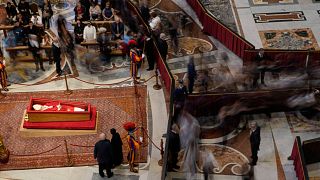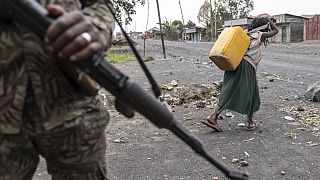Democratic Republic Of Congo
On May 14, 2000, the Ruzizi River, which separates the Democratic Republic of Congo (DRC) from Burundi and Rwanda, bore the bodies of hundreds of civilians massacred in Katogota by rebels from the Congolese Rally for Democracy (RCD). Twenty-four years later, the residents of Katogota, a village in the Ruzizi Plain in eastern DRC, continue to mourn and demand justice.
In a recent memorial procession, villagers walked to the Ruzizi River to honor the victims. The massacre, carried out by the RCD, a group once allied with Rwanda and now a registered political party in the DRC, left deep scars on the community.
Hope in Resurrection
Kamale Paul, a Eucharistic minister, expressed the community's hope during the ceremony: "We hope that the hearts of our deceased loved ones will be resurrected on the last day by Christ, who is alive with others who have died in faith. We thank you for every grace you have granted to your faithful here on earth."
Despite the passage of time, the wounds remain fresh, and the demand for justice is as urgent as ever. Under the theme "The fruit of justice will be peace," the victims' families, organized as the Association of Katogota Massacre Victims, rallied to show that their quest for justice continues.
A Deafening Silence
Bagalwa Mwara Blaise, a representative of the victims, highlighted the ongoing struggle: "The blood of the victims continues to cry and plead every day for justice because we have truly noticed a deathly silence from the Congolese government and its partners. This monument erected by the people is in memory of the victims and to remind the government that the silence is deafening and that it is time to move from words to action."
Call for Transitional Justice
Éric Muhomo, the chief of Katogota village, called for a more effective judicial response: "This is indeed a very serious crime, and I believe the Congolese justice system is not competent to handle this case. There needs to be a transitional justice mechanism at the national level. This is what we have always requested, as reparation is one of its pillars. We believe that perhaps the perpetrators can be punished."
As part of the memorial, flowers were thrown into the Ruzizi River and laid at a monument on Katogota's main street, symbolizing the community's tribute to the massacre victims. A mass was also held at the Bon Berger Catholic Chapel in Katogota to remember those unjustly killed.
Despite the ongoing efforts, the implementation of transitional justice mechanisms remains slow, leaving the victims' families in a prolonged state of uncertainty and pain. The community continues to press for justice, hoping that one day, the echoes of their cries will be met with action.










Go to video
Paris concert shines light on Congo's 'silent' war
01:09
U.S. calls on Rwanda to withdraw troops from eastern DRC and end support for M23 rebels
Go to video
At least 50 dead in violent attacks in eastern DRC
Go to video
Conflict in DRC: African Union names Togolese president Faure Gnassingbé as new mediator
01:02
Kabila plans return to DR Congo amid growing crisis
Go to video
United Nations marks anniversary of genocide in Rwanda